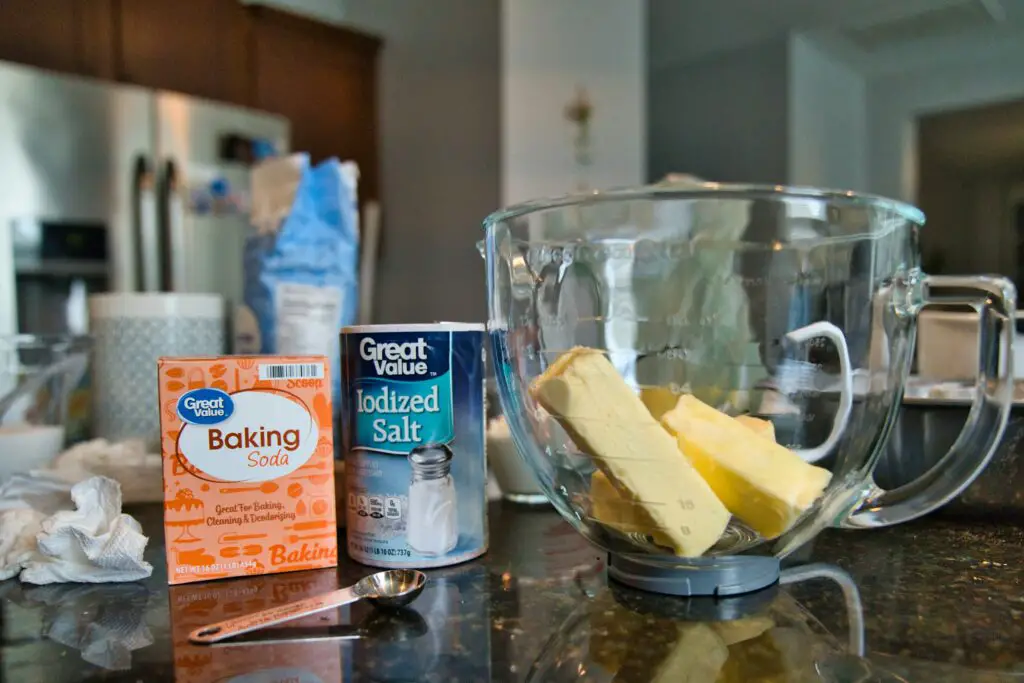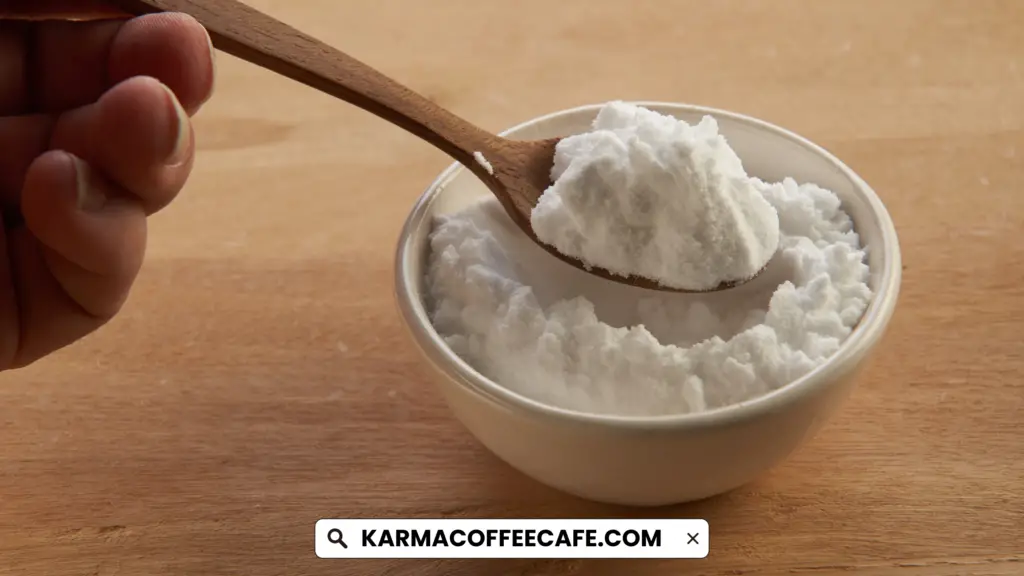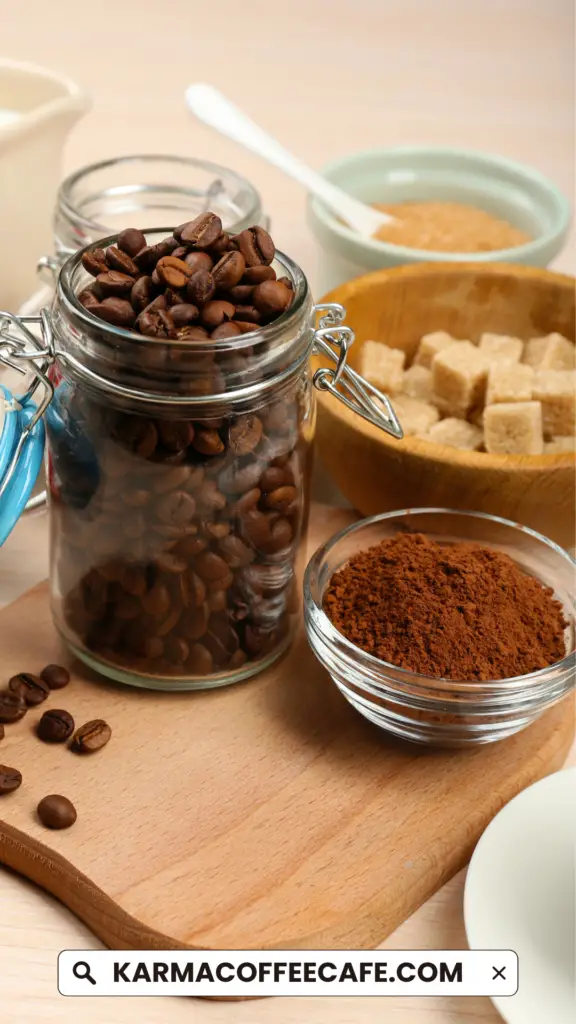Have you ever heard of the Baking soda coffee loophole?
It’s a simple trick that involves adding a pinch of baking soda to your coffee.
This small addition can make your coffee smoother and easier on the stomach.
Baking soda helps neutralize the acids in coffee, which can reduce digestive discomfort and improve the taste.
This hack is gaining popularity among coffee lovers looking for a better brew experience.
Whether you have a sensitive stomach or just want a smoother cup, this easy fix is worth a try.
Why Add Baking Soda to Coffee?

Reducing Acidity
Adding baking soda to coffee can significantly reduce its acidity.
Coffee contains acids like malic acid, citric acid, and acetic acid, which can cause stomach upset for some people.
Baking soda, being alkaline with a pH of eight, neutralizes these acids, raising the pH level of the coffee closer to neutral.
This chemical reaction can help prevent digestive discomfort, acid reflux, and nausea, making coffee more enjoyable for individuals with sensitive stomachs or acid reflux issues.
Smoother Taste
Baking soda doesn’t just reduce acidity; it also improves the taste of your coffee.
Cheaper or overly bitter coffee can be harsh on the palate.
By neutralizing some of the coffee’s acids, baking soda helps mellow out these sharp flavors.
This results in a smoother, more pleasant cup of coffee.
This hack is particularly beneficial for those who use budget-friendly coffee brands or lighter roast varieties that tend to be more acidic.
Health Benefits of Baking Soda in Coffee

Digestive Comfort
One of the primary health benefits of adding baking soda to coffee is improved digestive comfort.
As mentioned earlier, coffee’s acidity can often lead to stomach upset, acid reflux, and nausea.
Baking soda helps neutralize these acids, reducing the potential for such issues.
This makes coffee much easier on the stomach, especially for those with sensitive digestive systems or chronic acid reflux.
Alkalizing Effects
Baking soda has alkaline properties, which can be particularly beneficial for individuals with conditions like gout.
By neutralizing stomach acid, baking soda helps lower uric acid levels in the body.
This can help reduce the frequency and severity of gout flare-ups.
The alkalizing effect of baking soda can also provide general relief for those who suffer from digestive discomfort related to high acidity.
Weight Management
There are claims that adding baking soda to coffee can aid in weight management.
While the evidence is not conclusive, some believe that the combination can boost metabolism.
Coffee alone can increase your resting metabolic rate, and adding baking soda might enhance this effect by making the coffee easier to digest and less harsh on the stomach.
This could potentially make it easier to maintain a healthy weight.
However, it is important to approach these claims with caution and not rely solely on this hack for weight loss.
Maintaining a balanced diet and regular exercise remains crucial for effective weight management.
How to Use Baking Soda in Coffee

Correct Amounts
Using the right amount of baking soda is key to getting the best results.
For a single cup of coffee, less than a quarter teaspoon is enough.
For a full pot, you can use up to half a teaspoon.
Start small and adjust to your taste.
Combination with Other Ingredients
For an added boost, try combining baking soda with Saigon cinnamon.
Saigon cinnamon has unique characteristics that enhance the flavor of coffee, making it richer and more aromatic.
This combination not only neutralizes acidity but also provides additional health benefits.
Start with a pinch of baking soda and a couple of sprinkles of Saigon cinnamon to see how you like it.
Application with Single-Serve Pods
You can also use baking soda with single-serve coffee pods, such as those used in Keurig machines.
For a standard 12-ounce cup, add about 1/16th teaspoon of baking soda directly into the pod or into your cup before brewing.
Stir well to ensure it mixes properly.
You can skip the cinnamon or add just a sprinkle, depending on your preference.
Potential Drawbacks and Precautions
Taste Considerations
While adding baking soda to your coffee can improve its smoothness, using too much can negatively affect the taste.
A small amount, such as less than a quarter teaspoon per cup, usually works well.
However, if you add too much, the coffee can become flat or even salty.
This can make the coffee unpalatable and ruin your morning brew.
It’s important to start with a small pinch and adjust gradually to avoid these taste issues.
Health Risks
Though baking soda can neutralize coffee’s acidity, consuming it in excess can cause health problems.
Large amounts of baking soda can lead to digestive discomfort, such as gas and bloating.
In some cases, it can even cause poisoning.
It’s crucial to use baking soda in moderation.
Overuse can lead to further digestive issues rather than providing relief.
Always be mindful of the quantity you add to your coffee to avoid these potential health risks.
Medical Advice
If you experience persistent stomach issues despite using baking soda in your coffee, it’s best to consult with a healthcare professional.
Continuous discomfort could indicate underlying health problems that need medical attention.
While baking soda can offer temporary relief, it is not a cure-all.
A healthcare professional can provide personalized advice and treatment options tailored to your specific needs.
Additional Tips for Enjoying Coffee with a Sensitive Stomach

Roast and Brewing Methods
Choosing the right roast and brewing method can significantly reduce coffee’s acidity.
Dark roast beans are less acidic compared to lighter roasts.
This makes them a better option for those with sensitive stomachs.
Brewing methods also play a role.
Espresso and cold brew methods result in less acidic coffee.
The longer brewing time for cold brew extracts fewer acids, and the quick extraction of espresso leaves many acids behind.
Diluting and Adding Creamer
Another way to reduce coffee’s acidity is by diluting it or adding creamer.
Simply adding water to your coffee can lower its acidity.
This makes it less intense and easier on the stomach.
Adding a splash of creamer can also help.
Creamer, milk, or even plant-based alternatives can neutralize some of the acids in coffee.
This not only reduces acidity but also enhances the flavor, making your coffee smoother and more enjoyable.
Choosing Quality Beans
The quality of your coffee beans plays a crucial role in minimizing digestive issues.
High-quality, fresh-roasted coffee beans tend to be less acidic and more flavorful.
These beans are often grown and processed with greater care, resulting in a smoother cup of coffee.
Opting for specialty-grade beans can reduce the likelihood of experiencing stomach discomfort.
Conclusion
Adding baking soda to coffee can reduce acidity and improve taste, making it a great option for those with sensitive stomachs.
Using the correct amount and combining it with ingredients like Saigon cinnamon can enhance your coffee experience.
Don’t hesitate to experiment with this simple hack for a smoother, less acidic brew.
If you have ongoing digestive concerns, be sure to consult with a healthcare professional for personalized advice.
Enjoy your coffee in a way that works best for you!


